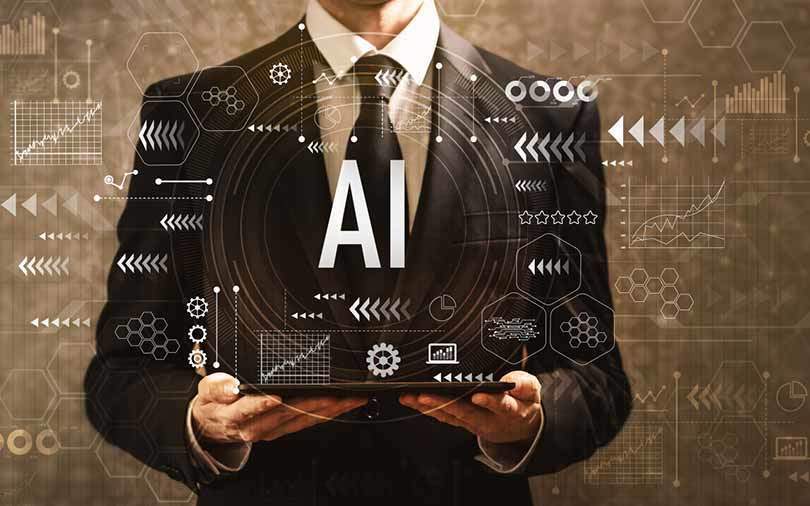
Engineer.ai: Cautionary tale of inflated claims and lack of transparency?


This is an important cautionary tale of our times for entrepreneurs. The financial daily Wall Street Journal reported last week that Los Angeles- and Delhi-based artificial intelligence (AI) startup Engineer.ai used humans to build software while claiming to have automated the process.
Engineer.ai founder and chief executive officer Sachin Dev Duggal rebutted the publication's version of the story in a long 3,000-word blog post saying the company had always said it was building a human-assisted platform and had never claimed or misled customers by saying that it is a fully automated platform.
The WSJ report has been picked up by a lot of publications across the world and has been widely circulated, denting the company's image and probably causing irreparable damage to its brand image.

The international business publication spoke with several current and past employees of Engineer.ai who said the company relied on human engineers to build the apps while inflating the role of AI.
The controversy raises some pertinent questions regarding the company, founder and investors. Did the investors do the due diligence properly in their rush to make investments in the hype cycle of AI-led products and platforms?
While the investors seem to have stuck with the founder for the time being in public, will they continue to do so once the company starts losing customer trust or business? Were they fully aware of it all the time?

Claims and counterclaims
Going by the claims and counterclaims, prima facie, this seems to be a case of the startup claiming to do more than what it actually does as well as claiming to have finished developing a product while it was a long way away from it. In fact, a disgruntled and retrenched employee has even filed a case making the same claims.
Assuming this to be even partially true, this would not be a rare case of an entrepreneur making lofty claims. The ecosystem has a plethora of examples where the founders claim to show a large number of users based on app downloads or other vanity metrics that don't show any tangible benefits or numbers that don't add up.

In the middle of all this controversy, most startups will see that there will be fewer takers for their claims of being an AI-based platform. The ecosystem's credibility has also been questioned along with the investors who back such startups that make inflated claims for customers and funding.
Founded in 2012 by Duggal, the Los Angeles- and Delhi-based firm had raised $30 million from investors like Lakestar and Jungle Ventures and Softbank’s DeepCore.
Engineer.ai lets users turn their ideas into business by building, running and scaling applications or projects without any knowledge of coding. It had said earlier it was doing it by using an automated software platform.

Exaggerated claims?
Engineer.ai’s former chief business officer Robert Holdheim had doubted the company’s technical prowess, according to the WSJ report.
In a wrongful-termination complaint, filed in February in Los Angeles Superior Court, Duggal apparently told Holdheim: “Every tech startup exaggerates to get funding—it’s the money that allows us to develop the technology.”

The news report also quoted Holdheim’s complaint which said that Duggal was telling investors that Engineer.ai was 80% done with developing a product while the entrepreneur had barely even begun to develop.
Engineer.ai only started to build the technology needed to automate app-building in the last two months, a person familiar with the company’s operations told WSJ, adding that the company was more than a year away from being able to use any AI for its core service.
Duggal, in the blog post published on the company website on Sunday, said they never claimed to automate software development. "We have always said "Human-Assisted AI" was more accurate. I’m all too aware of just how complicated program synthesis is from my own conversations with many academics that we are endeavouring to partner with as well as our own internal teams," he wrote.

The company always believed in building the right products at the right time and that it never misrepresented, according to Duggal. "The timing improves the top of the funnel journey, so people can ideate with greater ease or making sure we deliver better to our current and prospective customers," he said.
In its rebuttal, Duggal said Engineer.ai had indeed automated the platform-matching work to be done with the distributed supply of talent from around the world.
Is it the same as AI-enabled automated app/project building suite? It seems like it is quite different. But we will never know for sure.
"Whilst the use of AI and a much wider tech stack is key to our scale vector, equally important is our capacity partner network where we aggregate software development companies and allocate them to projects based on our system-generated grade of their teams. We will always be a human-assisted AI company. Our service needs this partnership to produce unique solutions that our customers need," Duggal wrote in the blog post.
So, it is pertinent to ask here: were the company's claims inflated? When the company was caught unawares, is it now taking refuge in the fact that it had always specified it was "human-assisted AI"?
We have more questions than answers for now.
